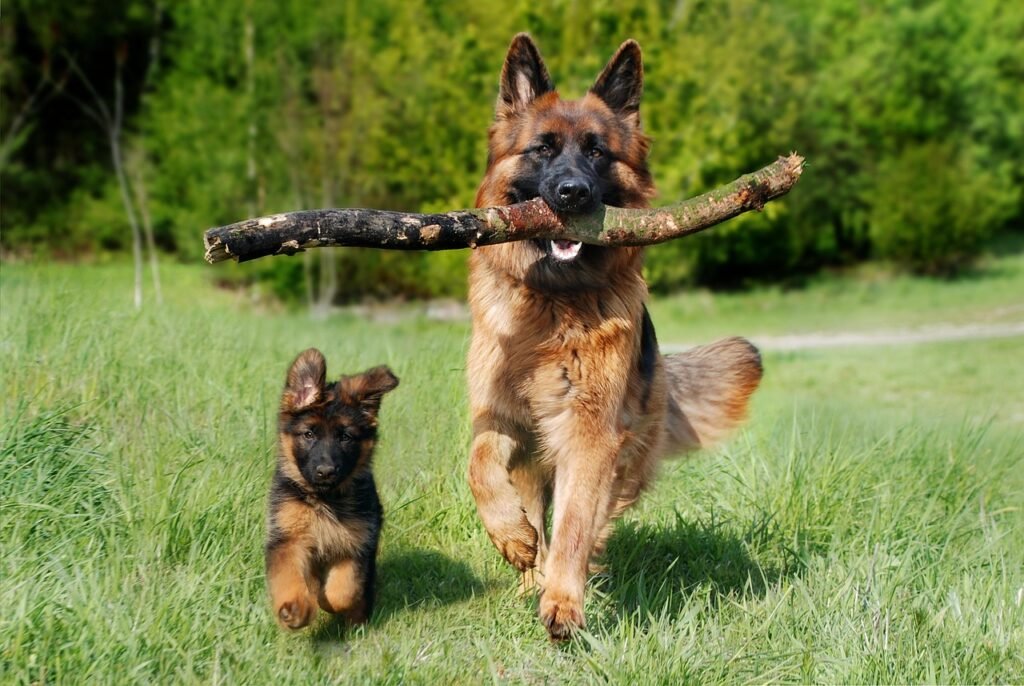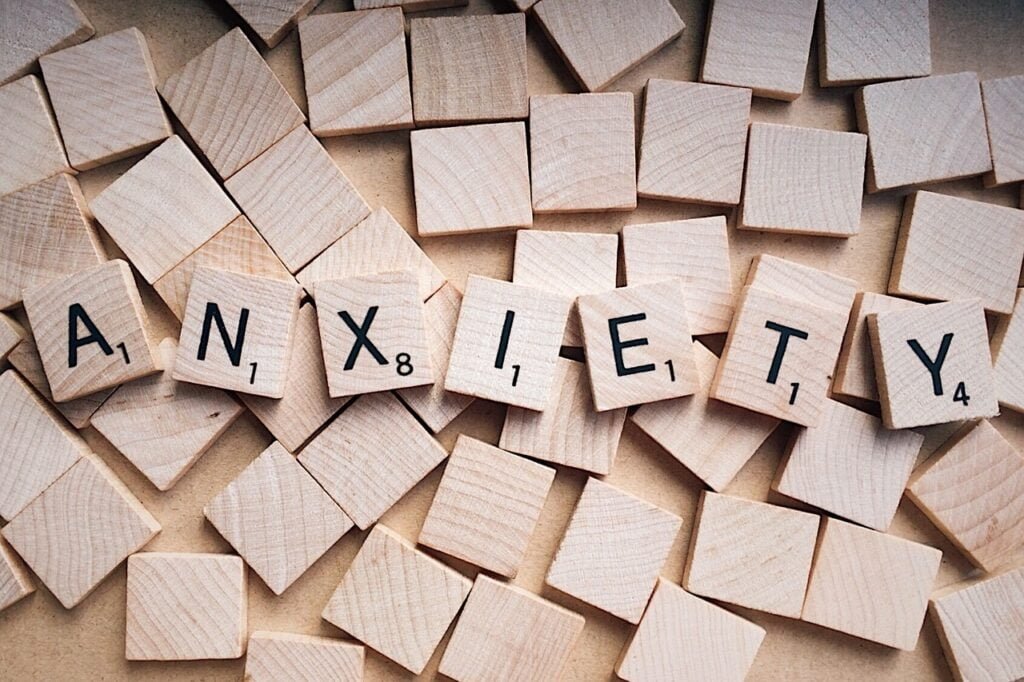
In “Managing Separation Anxiety in Dogs: Tips for Canine Health,” you’ll discover essential strategies to help your furry friend overcome those anxious moments when left alone. You’ll learn about the importance of a balanced diet and the role of health supplements designed to support your dog’s overall well-being and mental health. From natural remedies and canine wellness supplements to veterinary advice on the best dog health products, this article provides a comprehensive guide for dog owners. By incorporating items such as omega-3 fatty acids, glucosamine, and probiotics, you can help maintain your dog’s joint, skin, and coat health while easing their anxiety. Remember, consulting your veterinarian before introducing any new supplements is crucial to ensure the highest quality care for your companion. Have you ever come home to find your favorite pair of shoes chewed up or your living room turned into a disaster zone? If so, you might be dealing with a common yet stressful issue known as separation anxiety in dogs. Let’s dive into understanding this condition and explore effective tips for managing it, ensuring both you and your furry friend can enjoy a peaceful life together.

Understanding Separation Anxiety in Dogs
Separation anxiety isn’t just a minor inconvenience. It’s a significant and distressing experience for many dogs. When left alone, dogs with separation anxiety can experience extreme fear and distress, often leading to problematic behaviors.
Common Signs of Separation Anxiety
Recognizing separation anxiety early can help you take action before it escalates. Here are some common signs to look out for:
- Excessive Barking or Howling: Persistent vocalization when left alone.
- Destructive Behavior: Chewing furniture, shoes, or other household items.
- Pacing: Walking or running in a specific pattern when you’re away.
- House Soiling: Urinating or defecating inside the house despite prior training.
- Escaping: Attempting to escape from confined areas, which can result in injuries.
Identifying these signs can help you understand your dog’s anxiety and work on mitigating it.
Why Do Dogs Experience Separation Anxiety?
Several factors contribute to separation anxiety, ranging from genetic predispositions to changes in the household environment. Understanding these causes can help tailor your approach to managing the condition:
- Change in Routine: Dogs thrive on routine. A significant change, like a new job that keeps you out of the house longer, can trigger anxiety.
- Past Trauma: Some rescue dogs or those with a history of abandonment are more prone to anxiety.
- Lack of Socialization: Puppies not properly socialized can develop anxiety issues later in life.
- Genetic Factors: Certain breeds are more predisposed to anxiety.
Strategies to Manage Separation Anxiety
Effectively managing separation anxiety involves a combination of behavioral strategies, proper training, and nutritional support. Here are some detailed, actionable tips to help your canine companion.
Behavioral Strategies
- Desensitization Training: Gradually increase the duration of your absence to help your dog get used to being alone.
- Positive Reinforcement: Reward your dog for calm behavior when you leave and return home.
- Comfort Items: Leave behind items that smell like you, such as worn clothing, to provide comfort.
- Create a Safe Space: Designate a cozy and secure area where your dog feels safe and comfortable.
Professional Training and Assistance
- Consult a Veterinarian: Your vet can rule out any underlying medical issues and suggest effective treatments.
- Hire a Professional Trainer: Certified trainers can provide targeted behavioral therapies.
- Doggy Daycare: Providing a social environment can keep your dog engaged and reduce anxiety.
Medication and Natural Remedies
Sometimes, behavioral strategies need to be combined with medical intervention to manage severe anxiety.
Medication Options
- Anti-anxiety Medications: Prescribed by your vet, these can help manage severe cases of anxiety.
- Supplements: Natural supplements containing calming ingredients like L-theanine or tryptophan can be beneficial.
| Medication Type | Purpose | Consultation Needed |
|---|---|---|
| Anti-anxiety drugs | Manage severe anxiety | Yes |
| Calming supplements | Mild anxiety and overall calming | Yes |
| Herbal remedies | Natural calming effects | Preferably |
Dietary Support and Nutrition
A well-balanced diet can significantly impact your dog’s overall health and well-being, potentially reducing anxiety.
Key Nutritional Elements
- Omega-3 Fatty Acids: Great for brain health and reducing anxiety.
- Probiotics: Promote a healthy gut, which can influence mood.
- Glucosamine and Chondroitin: Essential for joint health, especially in older dogs, ensuring they stay active and engaged.
Suggested Dog Health Products
| Product Type | Benefits | Examples |
|---|---|---|
| Canine wellness supplements | Holistic health support | Fish oil supplements, probiotics |
| Organic dog health products | Free from harmful chemicals | Omega-3 chews, herbal calming chews |
| Joint supplements | Support hip and joint health | Glucosamine and chondroitin chews |
| Skin and coat supplements | Maintain healthy skin and coat | Omega-3 and Omega-6 supplements |
Routine and Environmental Adjustments
Consistency in your dog’s daily routine can significantly reduce anxiety.
Creating a Routine
- Regular Exercise: Physical activity helps burn off excess energy and keeps your dog calm.
- Scheduled Feedings: Consistent meal times can provide a sense of stability.
- Playtime: Interactive toys and activities keep your dog mentally stimulated.
Proper Healthcare and Regular Vet Visits
Regular veterinary check-ups are crucial for maintaining your dog’s overall health, thus indirectly helping manage anxiety.
Essential Veterinary Services
- Vaccination: Ensures your dog stays healthy and protected against diseases.
- Dental Cleanings: Oral health is crucial as dental issues can be painful and stressful.
- Health Screenings: Early detection of potential health issues.

Long-term Management and Support
Managing separation anxiety is often a long-term endeavor. However, with the right tools and strategies, you can significantly improve your dog’s quality of life.
Consistent Training and Reinforcement
- Ongoing Training: Continue to practice desensitization and positive reinforcement.
- Monitor for Triggers: Be aware of any changes that might trigger anxiety.
Identification and Management of Health Concerns
- Frequent Vet Visits: Regular check-ups to ensure your dog’s ongoing health.
- Monitor Overall Health: Keep an eye out for any signs of discomfort or illness that might exacerbate anxiety.
Socializing and Exercise
- Dog Socialization: Regular interaction with other dogs can provide mental stimulation and reduce anxiety.
- Daily Exercise: Ensure your dog gets plenty of physical activity to maintain both physical and mental health.
Conclusion
Separation anxiety in dogs can be a challenging issue, but with the right approach, you can ease your dog’s distress and create a harmonious home environment. Whether it’s through behavioral strategies, dietary support, or professional assistance, your proactive steps can make a world of difference in your dog’s life.
Remember, patience and consistency are key. As with any health concern, working closely with your veterinarian will provide the best chances of success. Here’s to a happier, healthier life for you and your faithful companion!








